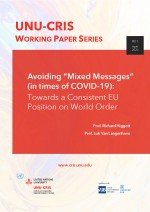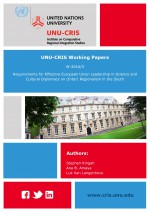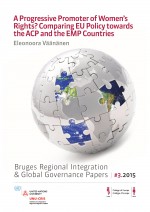‘Patchwork Power’ Europe? The EU’s Representation in International Institutions
This paper examines why, after five decades of integration, the European Union's representation in international institutions still varies considerably. This question has so far not attracted much scholarly attention in political science; most studies focus on the legal status of the EU in international organisations, in particular in UN bodies. The EU does not consistently 'speak with one voice' as a global actor, but its international representation varies from the Commission, the EU presidency (and troika) over the European Central Bank to the national, sometimes coordinated positions of the member states. The Union's role in global governance is thus constrained by a bewildering pattern of external representatives. Theoretical approaches suggest four explanatory factors: issue areas, institutions, interests and identities. The paper argues that the usual focus on issue areas in terms of the distribution of legal competences alone cannot explain the EU's current role as a 'patchwork power'. Institutional factors (such as an organisation's rules of participation and the EU's own coordina- tion mechanisms) and the member states' constellation of interests have to be taken into account as well.



